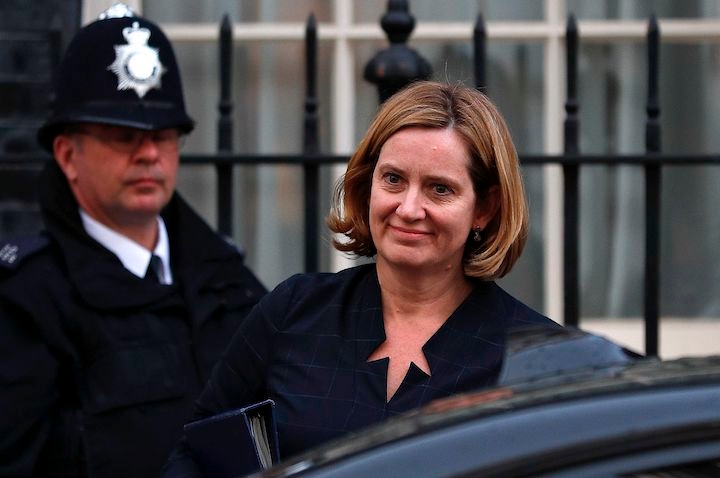When the Windrush scandal broke, it was largely seen as Theresa May’s fault, given the Prime Minister had introduced the hostile environment policy when she was Home Secretary. But this week, the focus has shifted to Amber Rudd, and whether she knew what was going on once she took over the role.
This afternoon the Guardian has a leak which suggests Rudd’s grip on her department is even weaker than we’d previously thought. Following a chaotic 24 hours in which the Home Secretary told MPs on the Home Affairs Committee that there were no Home Office targets for immigration removals and then corrected herself in the Commons the following day, the newspaper has now published a secret memo which suggests Rudd was wrong to say she did not know about these targets.
The memo, which was written by Hugh Ind, the director general of the Immigration Enforcement Agency, for the minister and her senior colleagues, says the Home Office has ‘set a target of achieving 12,800 enforced returns in 2017-18’. Yet when she was summoned to answer an urgent question in the Commons on this matter yesterday, Rudd told MPs that ‘I was not aware of’ the targets that the immigration arm of her department had been using.
It may well be that Rudd was not intentionally misleading Parliament: she might not have known about the targets because so much paper crosses a Home Secretary’s desk that it is impossible for one person to keep up. But that’s why a Cabinet minister has special advisers and a private office, and why preparing for select committee appearances is no small task. What this latest leak, and the way events have unfolded over the last few weeks, has told us is that Rudd does not have the grip on her department that her predecessor enjoyed.
Theresa May was notorious as a micromanager, superseded in reputation only by her special advisers Fiona Hill and Nick Timothy, who did far more than advise: they saw themselves as directly responsible for the day-to-day running of the Home Office. This was why May was able to achieve the almost miraculous feat of moving from that department into Number 10: she didn’t let go of anything for long enough for it to turn into a row. That’s not to say that May didn’t have to weather crises when she was Home Secretary. It’s just that when something went wrong, such as with the UK Border Agency, she would ensure that her opposite number couldn’t get a hold on it enough for the row to last very long at all.
That opposite number, incidentally, was Yvette Cooper, who was Shadow Foreign Secretary until 2015. Cooper is a good politician, but May always managed to outwit her. This week, though, we saw what the now Chair of the Home Affairs Committee can do with a less well-armoured Home Secretary: it was during Committee’s evidence session on Wednesday that Rudd started the latest debacle over targets. It’s unlikely that this will be the last debacle, either.







Comments